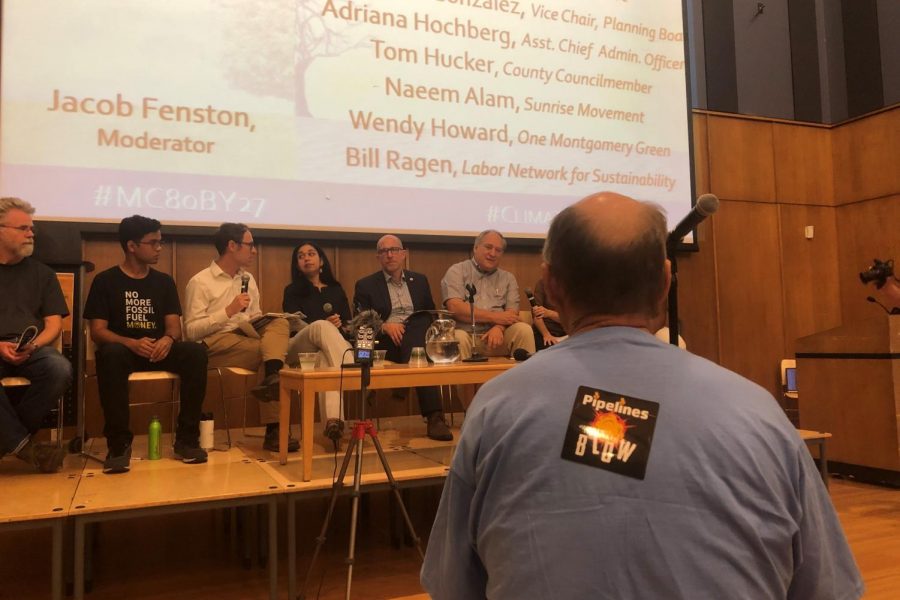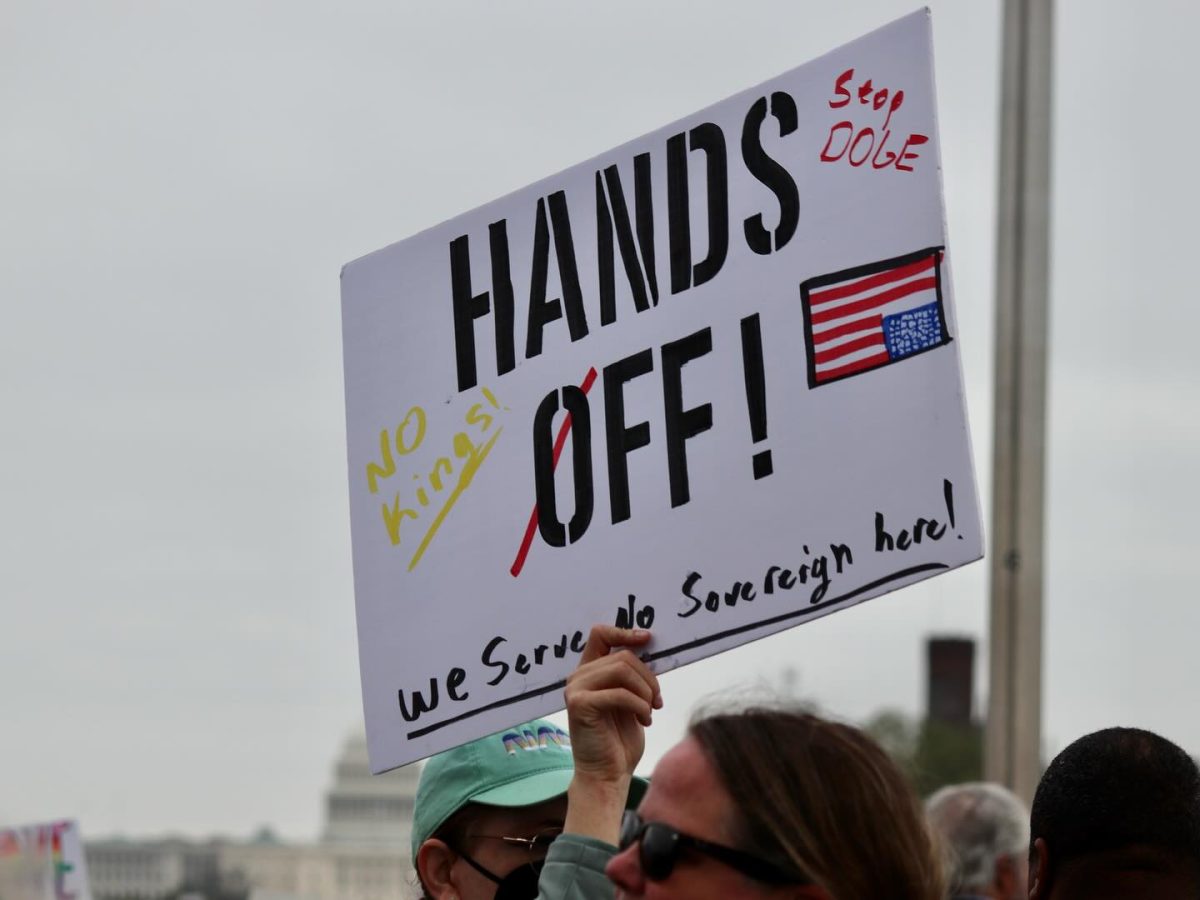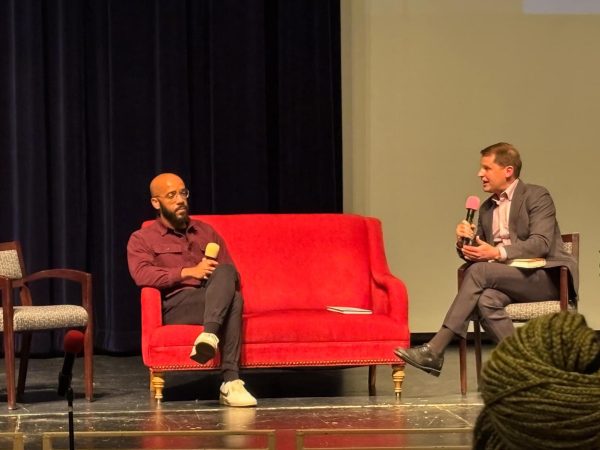Local activists host town hall, discuss climate change policy with county officials
Activist Walter Weiss faces a panel of county officials and local activist. His sticker—“pipelines blow”—advocates for the banning of fracking pipelines.
September 22, 2019
Over 300 county residents and environmental activists discussed actions Montgomery County officials are taking to lower carbon emissions Sept. 14 at the Silver Spring Civic Center.
Activist group Takoma Park Mobilization organized the event, and American University student Jacob Fenston moderated. Several other county-based environmental groups joined to vocalize their support for increased renewable energy and decreased personal consumption.
During the event, County Executive Marc Elrich, Councilman Tom Hucker, Vice Chair of the Planning Board Natali Fani-González, Assistant Chief Administrative Officer Adriana Hochberg and several local activists spoke in a panel addressing the need for urgent environmental policy change.
Throughout the town hall, panelists emphasized the need to find a balance between environmental friendliness and cost efficiency; the officials noted the complications of gathering enough financial and human resources to make significant environmental change.
“We looked at what it would take to make this happen and it was kind of sobering,” Hucker said during the panel. “It requires a dramatic transformation, difficult policy decisions and significant resources.”
Local activist Walter Weiss asked whether the county officials were planning on making all buildings carbon-free by 2027. Hucker responded that he planned on it, and Elrich agreed, though he had reservations.
“It’s a very slow and expensive process,” Elrich said, to which the crowd responded with boos.
Residents also asked about increasing solar panelling on buildings, decreasing personal consumption of water and electricity, and switching to electric bus fleets. All of the officials said that while they supported these changes, many policies would be difficult to enact realistically.
“The scale of change is massive,” Hochberg said. “But the time frame is too short.”
Other audience members asked the officials if they had any plans to create an environmental education program; one Takoma Park resident was dismayed that none of her neighbors knew how to recycle or compost properly. Fani-González responded that the power to educate lies in the citizens. Many of the attendees were upset with this response and believed the officials deflected their own responsibilities to the residents.
“I think they could have demonstrated stronger leadership,” event organizer Doris Nguyen said. “I expect leaders to be leaders. Yes, as citizens, we also need to take action. But that does not absolve our country officials from forging the path ahead.”
Nguyen was also disappointed that the officials avoided directly answering tough questions. Most audience members felt that the politicians didn’t deliver specific enough answers to their questions.
“It is a climate emergency, after all,” Nguyen said. “This is not the time to be timid.”












Joe Ann A. • Mar 13, 2020 at 9:44 pm
I was doing some research on climate change in Montgomery County and found this article; I love to see high school students write about key issues affecting the world. But I must say, I attended this forum in Silver Spring and I’m disappointed to see how the writer is portraying Natali F. Gonzalez. She is on the Planning Board, she doesn’t pass laws (unless Hucker who passes county laws or the County Executive who can make executive changes). As a commissioner, Natali is the one pushing for environmental changes as much as her power gives her with development applications and parks, but again, she cannot pass county laws, so why would she talk about that if she can’t do it? At the forum she was talking about the power community members have to influence change (she is a community lobbyist by trade after all). And that is up to us, to organize and demand that change. That’s how laws get passed, getting the public to place pressure. Natali has been one of the most fearless advocates for climate change on the Planning Board. I watched last week’s session on the climate change report coming up from the county, and she was on point on many issues. I wonder if you came up to hear to ask her what she meant? She is so approachable that I would be surprised if she turned you down to clarify anything.
Again, love that you are writing about it. Just sharing constructive criticism.